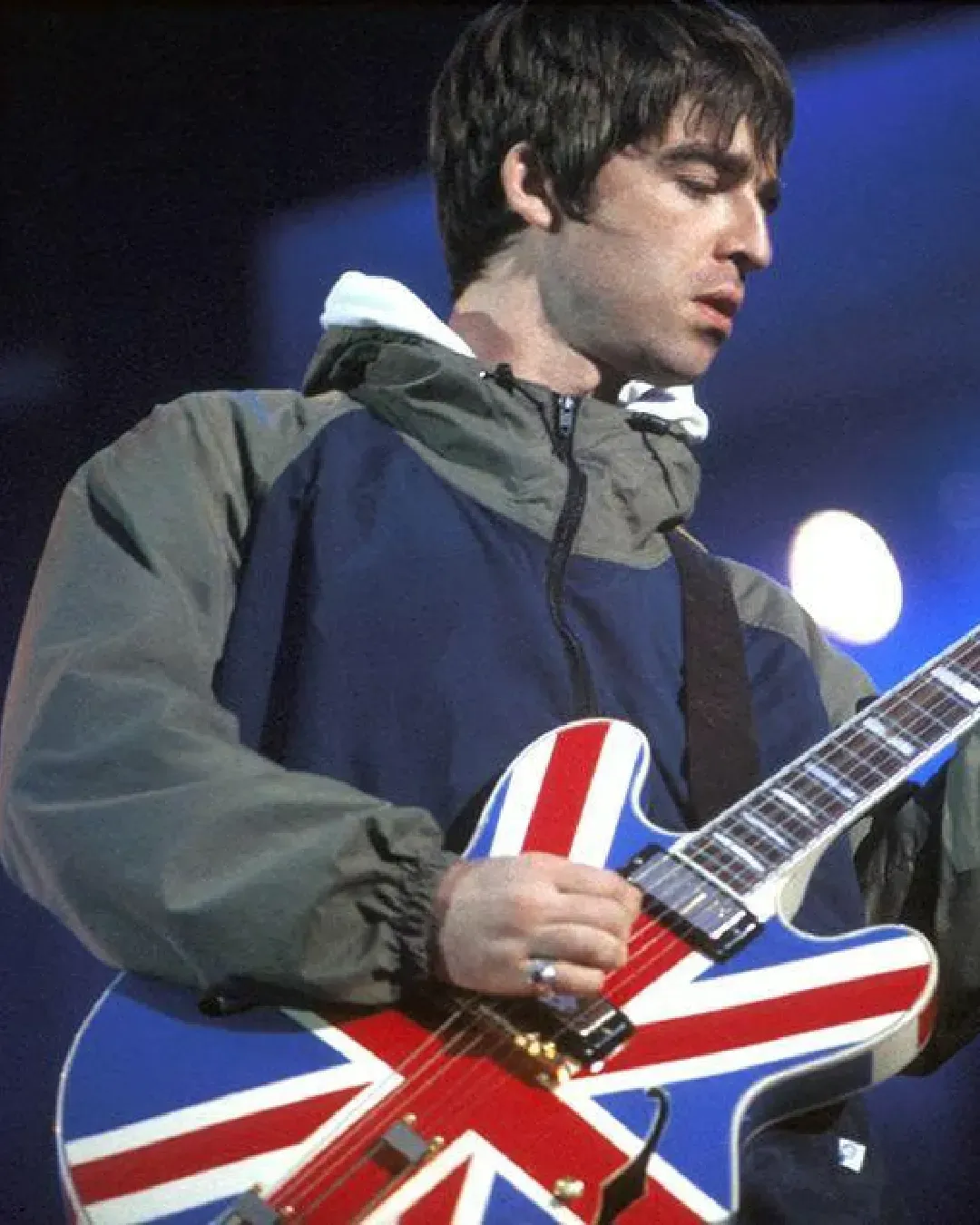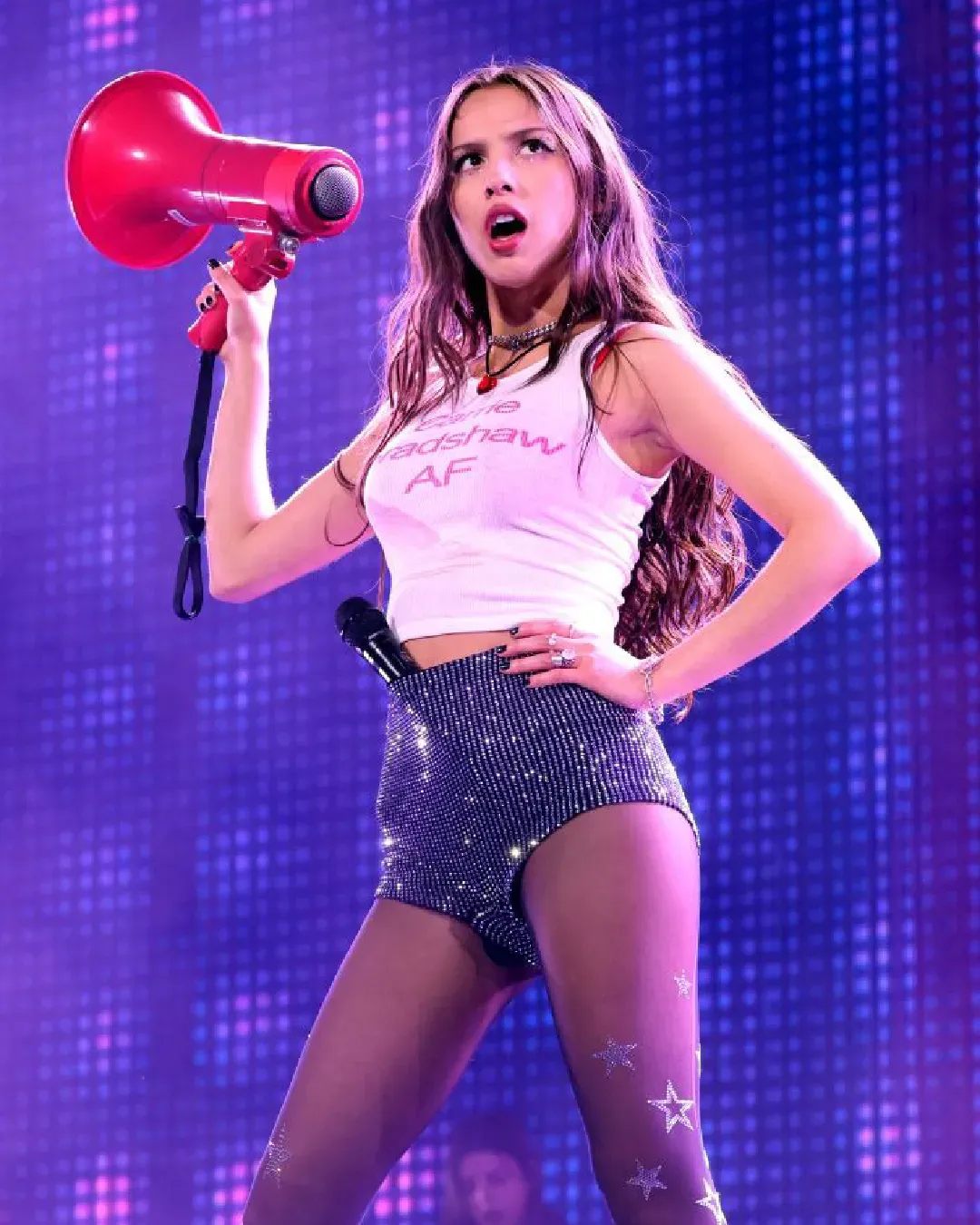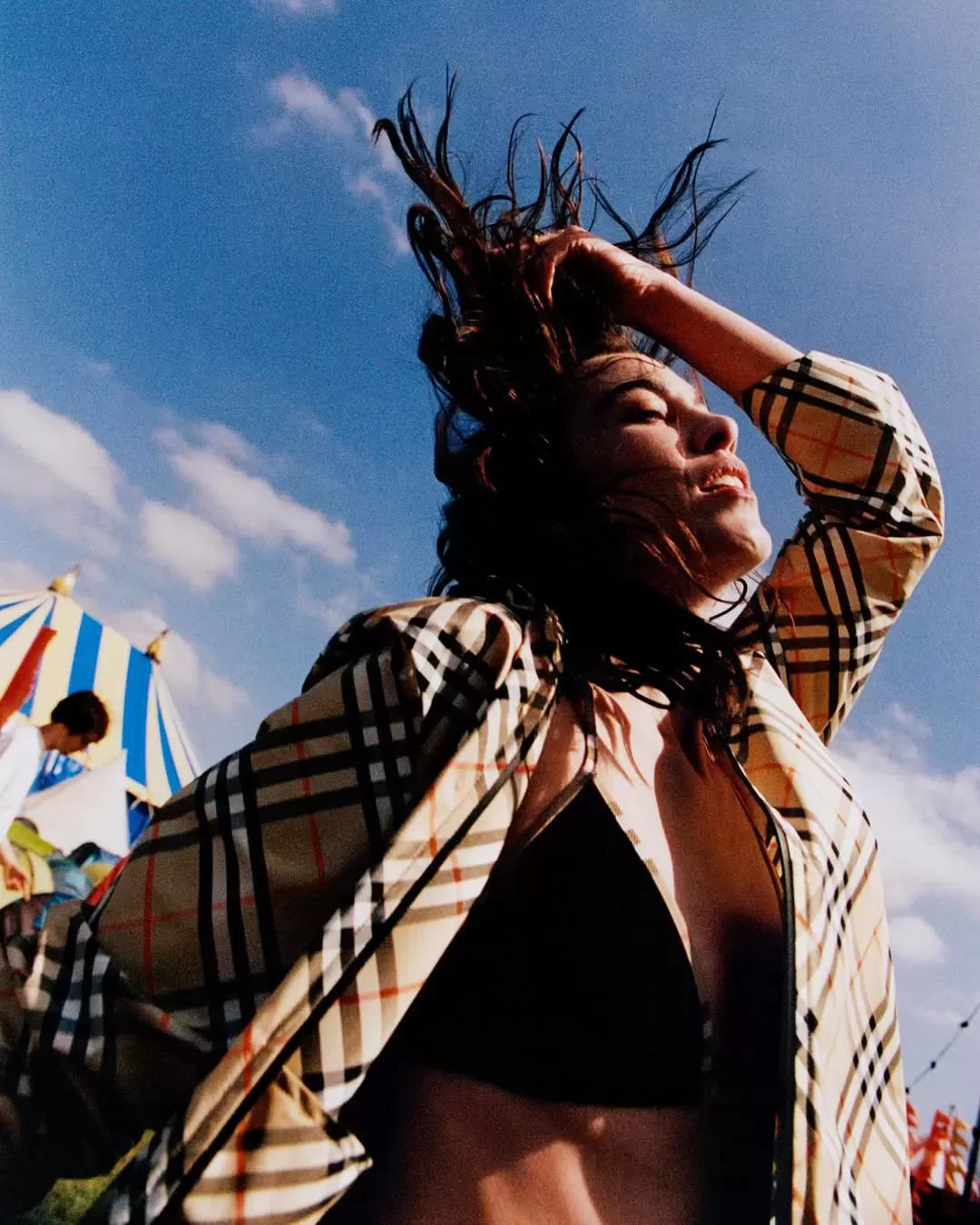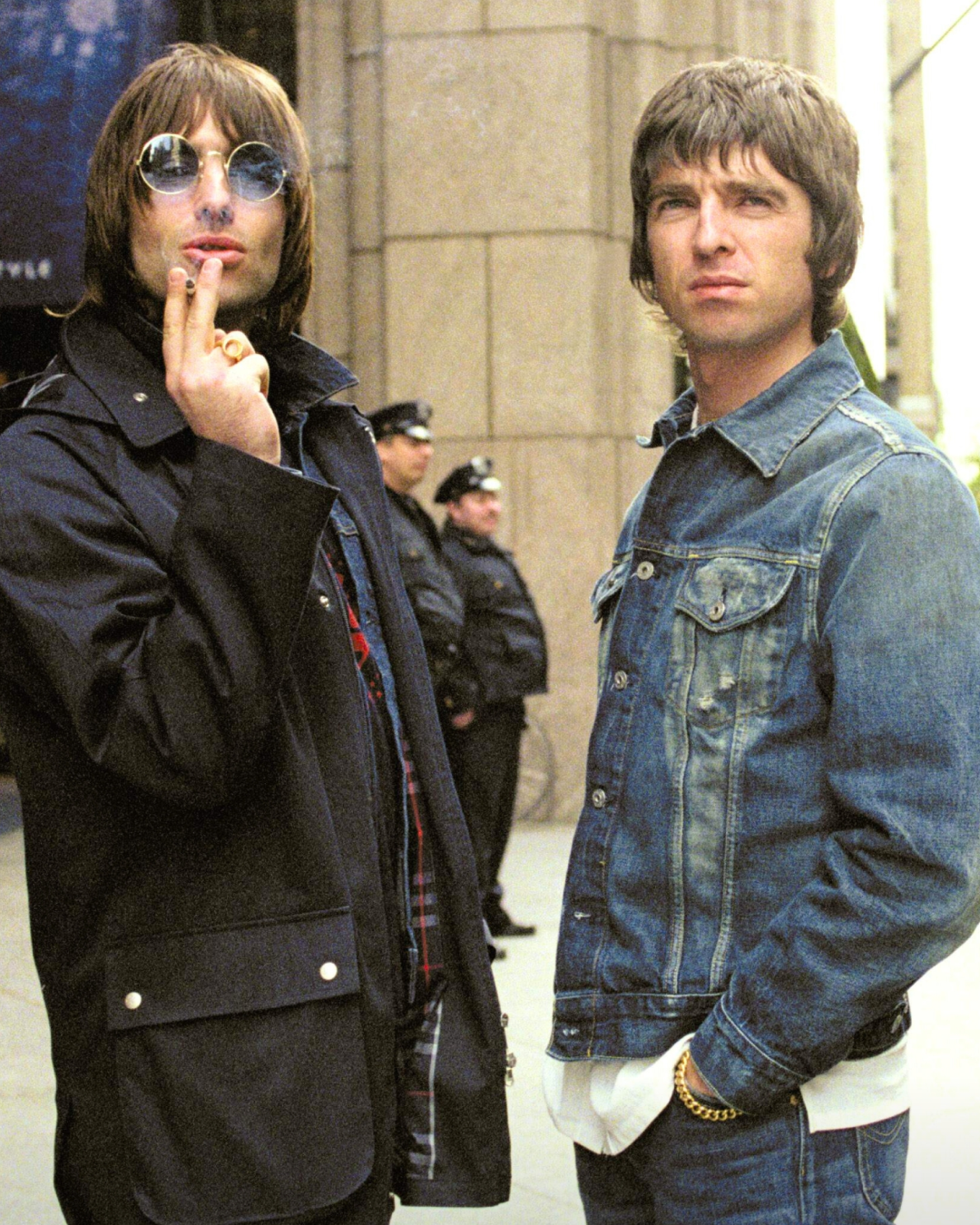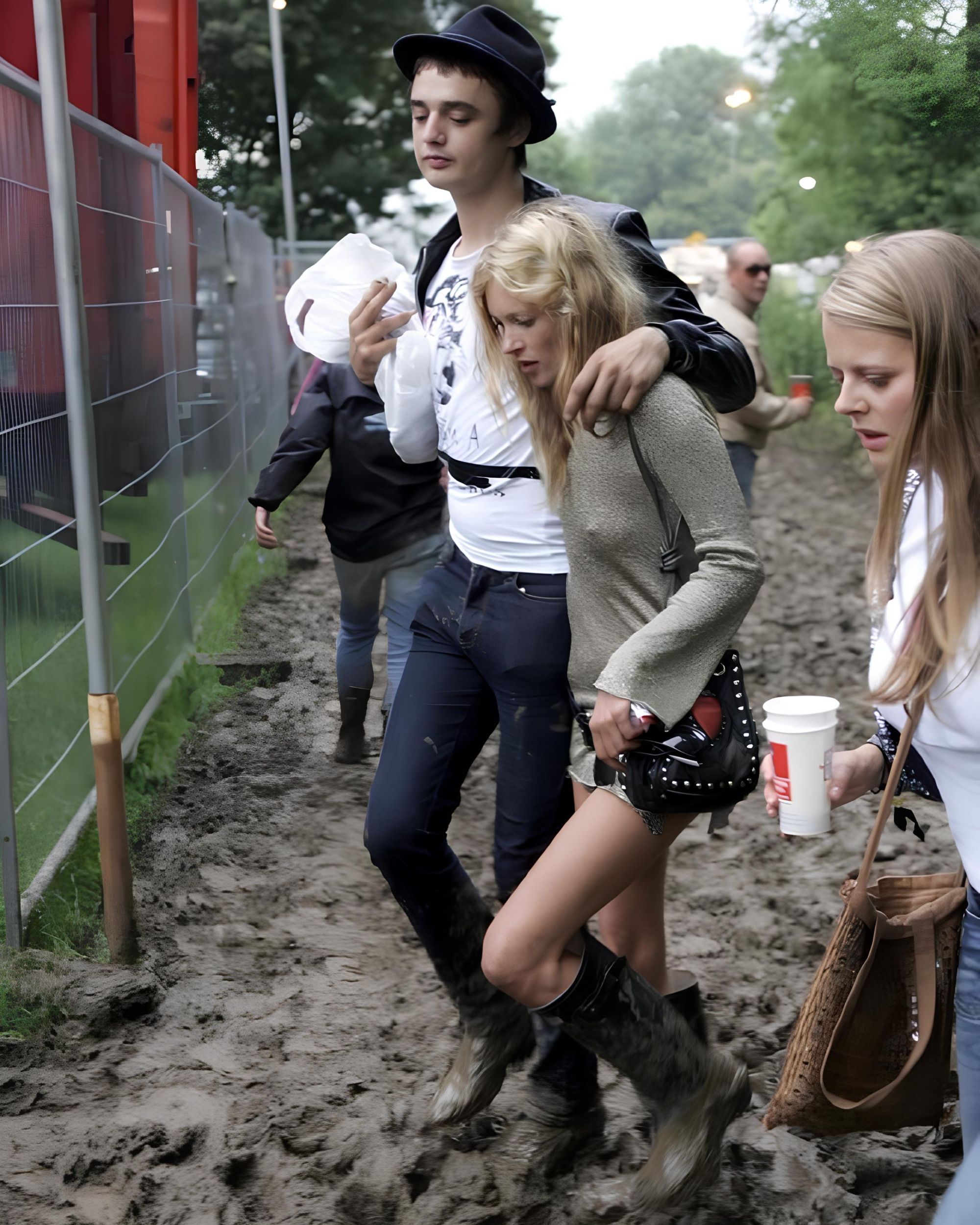
What does “Cool Britannia” mean? The Oasis reunion, Celine's last show, the eternal allure of the Union Jack
The Oasis reunion and the rise of a Labour government in the UK, as well as the nostalgia triggered by the phenomenon film Saltburn, have brought back to the collective imagination the historical period known as “Cool Britannia”, a kind of perfect cultural storm that dominated Great Britain in the mid and late '90s, a time of national pride, optimism, and cultural renaissance. During this period, we also saw: the brilliant and tragic arc of Lady D.; the explosion of Britpop, the UK's victory at Eurovision and the success of the Spice Girls and Take That, the rise of David Beckham, Harry Potter books, the Austin Powers saga; cinematic successes such as Full Monty, Billy Elliot, Love Actually, Guy Ritchie’s films, as well as Pierce Brosnan’s James Bond; in fashion, John Galliano and Lee McQueen brought a revolution while Vivienne Westwood set things ablaze; London was simply the place-to-be and the Union Jack one of the symbols through which this sense of freshness and interest was manifested. Thus was born the phrase "Cool Britannia": a play on the 18th-century patriotic anthem Rule, Britannia! closely linked to the rise of Tony Blair's New Labour government and the seismic changes in British society after years of Conservative rule. The movement drew inspiration from the vibrant "Swinging London" of the '60s, mixing it with modern elements, in stark contrast to the gloominess of American culture dominated by grunge, the harsh social critique of hip-hop, the violent deaths of various cultural icons from Gianni Versace to Tupac, and the dramatic events of Columbine.
How did the term “Cool Britannia” originate?
As mentioned, the phrase originated as a distortion of the motto Rule, Britannia first emerging on the debut album of the Bonzo Dog Doo Dah Band in 1967, whose lyrics read: «Cool Britannia, Britannia you are cool/Take a trip!/Britons ever, ever, ever shall be hip». In '96, the ice cream brand Ben & Jerry’s registered the trademark for a product line and also a Channel 4 magazine show. By the 1990s, the phrase was used to symbolize the UK's economic recovery, while in '96 American journalist Stryker McGuire wrote an article titled London Rules on Newsweek, in which the English capital was described as the «coolest city on the planet», overturning the existing cliché that saw the city as a sad and outdated place. Tony Blair’s election as Prime Minister in 1997 marked the peak of the Cool Britannia era. Blair, who led the Labour Party to a landslide victory after 18 years of Conservative rule, embraced the cultural renaissance that was sweeping the country. His government was eager to align with this young and modern image of Britain. This culminated in the famous 1997 event where Noel Gallagher of Oasis visited Blair’s residence, symbolizing the new relationship between politics and pop culture—though by '99, Noel Gallagher admitted he regretted accepting the invitation, under his mother’s pressure. Blair's government sought to reposition Britain as a dynamic and forward-looking nation. This repositioning extended to the arts, where the "Young British Artists" (YBAs) movement, led by figures like Damien Hirst and Tracey Emin, made waves both at home and abroad. The art scene in the UK became another pillar of Cool Britannia, with its irreverent and cutting-edge works symbolizing the fresh and rebellious spirit of the time.
@britpopgloryofficial #britpop #britpopmusic #britpopglory #oasis #oasismusic #noelgallagher #liamgallagher #rock #music #musica #ninetiesmusic #90s #nineties #labour #tonyblair #labourparty #british #uk #politics #fyp #viral #foryou #london #manchester #blur #damonalbarn @Oasis, Blur, Verve & Co. Wonderwall - Oasis
On the popular front, it was the musicians who were at the center of this revolution. The origins of Cool Britannia can all be traced back to the emergence of Britpop, a musical genre that saw British bands revitalizing the charisma and sensibilities of the '60s, particularly The Beatles and The Kinks. Britpop emerged as a reaction to grunge and a rejection of the social malaise that then characterized US culture, which dominated the West but was seeking an alternative. Bands like Oasis, Blur, Pulp, The Libertines, and Suede led the charge, riding a broader sense of optimism in the UK as the economy began to recover from the turbulence of the '80s. Oasis, in particular, were at the forefront of this movement. Their debut album, Definitely Maybe from 1994, was a commercial and critical success that sparked a cultural wave lasting for years. With their Beatles-inspired sound and the irreverent, cheeky attitude of a working-class group, Oasis embodied the spirit of Cool Britannia—a heady mix of nostalgia and novelty. Their rivalry with Blur, a band that represented the intellectualism of the middle class, became a symbol of a broader cultural conflict, often described by the media as the "Britpop Battle."
the whole Britpop battle was about who was more homosexual pic.twitter.com/fBq8jukEJj
— carla OASIS’25 (@carlaposca) September 6, 2024
While Britpop bands dominated the charts, The Spice Girls became the global face of Cool Britannia: in '96, Wannabe topped the charts in 37 countries along with its "girl power" message, which effectively launched all subsequent girl bands. Thanks in part to a series of films where all the "classic" symbols of England became like pop toys, the Spice Girls became an embodiment of the spirit of the time and played a crucial role in spreading the idea of Cool Britannia beyond the UK's borders. Following the strategy of cultural assimilation, Tony Blair publicly expressed his admiration for the Spice Girls, citing their hit Say You’ll Be There as one of his favorite songs of 1996. Their rise went hand in hand with Blair's, and they were often linked by the media to the image of the new, modern Britain.
The Cultural Boom
The Cool Britannia era wasn't limited to music but permeated all aspects of culture. The film industry saw a revival with films like Four Weddings and a Funeral from 1994 and Trainspotting from 1996—which, not coincidentally, had a soundtrack full of Britpop. In bookstores, there were global mega-hits like Harry Potter, which hit the shelves in '97, and Bridget Jones's Diary, released the year before, while in '99 A Series of Unfortunate Events arrived. Fashion also played a significant role in the Cool Britannia movement. Designers such as Alexander McQueen, John Galliano, and Stella McCartney gained international fame, while Kate Moss became an icon as Bond Street filled with new, young boutiques.
@runwaevault The attitude at John Galliano's Fall 1994/1995 Fashion Show was ICONIC! #iconic #90s #runway #supermodel #paris Originalton - RUNWAEVAULT
The Union Jack became a powerful symbol of this new British pride, famously worn by Geri Halliwell of the Spice Girls at the 1997 Brit Awards and by Noel Gallagher, who had it printed on his guitar. One of the most emblematic moments of Cool Britannia was Euro 1996, the football tournament hosted by England. It was a period of renewed patriotism, with the song Three Lions by David Baddiel, Frank Skinner, and The Lightning Seeds becoming the unofficial anthem of the tournament. The tournament reignited English national identity, drawing on nostalgia for the 1966 World Cup victory. Tony Blair drew inspiration from the song's lyrics at the 1996 Labour Party conference, creating a blend of pop culture and political rhetoric that defined his rise to power.
The Role of Margaret Thatcher
Historically, the phenomenon can be seen as a reaction to the long era of Thatcherism. Thatcher's policies, with their focus on economic liberalization and deregulation, had brought about significant changes in British society. In particular, her economic revolution known as the "Big Bang" led to explosive growth in the financial sector and transformed London into a global financial hub. This change, although it generated prosperity for some, also widened social inequalities and fueled a growing distance between social classes, creating a strong desire for redress within the working class (a notable example being Billy Elliott), which, often neglected and marginalized during the years of Thatcherism, found new opportunities for expression and creative success. Both Galliano and McQueen, for example, came from modest socioeconomic backgrounds and became prominent in a fashion scene that reflected the cultural fatigue present in the aristocratic and upper-bourgeois world of Parisian fashion, as also explained in the documentary Kingdom of Dreams. This new generation of creatives not only challenged established conventions but also celebrated a sort of rebellion against the social norms imposed by Thatcher's policies. Even Oasis came from the working classes and became representatives of a new energy and national pride with a very blue-collar tone, shining a spotlight on football culture and the subcultures surrounding it.
I don’t wanna sound like a drunk twat. But Noel and Liam made me feel that a working class kid could take on the world. They did it and I’m so thankful for that. @oasis
— Rob Beckett (@robbeckettcomic) August 29, 2021
The perceived wealth of England and the resulting optimism were the long wave of Thatcher's economic policies. One of the most visible changes she introduced was the expansion of home ownership through the "Right to Buy" program, which allowed tenants of public housing to purchase their homes at discounted prices. By 1991, the number of homeowners increased from 10.2 to 13.4 million—an increase unmatched in the following decades—leading to a reduction in public housing, longer waiting lists, and a growing scarcity of affordable housing. Within about ten years, the average house price tripled, exacerbating inequalities and contributing to greater economic volatility. Economically, the increase in economic liberalization and privatization led to a significant decline in the industrial and mining sectors, affecting many working-class communities and creating some social discontent within an overall picture of service growth and industrial contraction. Thatcher's policies also influenced income distribution: the average family income rose by 26%, but the poorest families saw only a modest increase, while the wealthiest families benefited more. Inequalities grew, and child and elderly poverty increased alarmingly during the '80s. The new creative icons of the '90s, emerging from the working class, embodied a rejection of established norms and a celebration of British diversity and vitality, creating a period of cultural revival that reflected a cultural desire to break free from the conservative atmosphere of Thatcherism.
The End of Optimism
Despite the initial optimism, the idea of Cool Britannia had its critics. As early as 1997, the term was becoming increasingly ironic. Some began to see it as a superficial marketing tool that commodified youth culture for political and economic ends. That same year, the most famous and official parody arrived: Austin Powers. Created by American comedian Mike Myers, Austin Powers and the trilogy it launched achieved huge box office success worldwide, and not coincidentally, the first film was released in '97, the year of Oasis and Tony Blair, poking fun at the iconographic obsession with the Union Jack and the excessive celebration of the free-spirited Swinging London. The clear parody was of James Bond and his national-popular myth, inspired by Myers' father who introduced him to '60s music and artists, but it is emblematic that the film's plot involves a Swinging London man "stranded" in '90s London and the gap between the values of the two eras, with a constant parody of the idea of Britishness undoubtedly driven by the omnipresence of UK culture in the pop sphere.
"You're not talking to Noel Gallagher, Cool Britannia was a load of bollocks to me"
— Secret Drug Addict (@ScrtDrugAddict) December 24, 2021
George Michael pic.twitter.com/FMnWQpVgH1
By '98, The Economist expressed cautious skepticism towards a rhetorical operation that was beginning to resemble a political manipulation: «There is a particular danger in putting ‘creative’ industries and youth culture at the centre of a government-sponsored effort to change Britain’s image. These are things that depend on fashion and spontaneity. But few things are less fashionable or spontaneous than a grinning politician in a suit». Indeed, by the early 2000s, the Britpop movement had largely faded and the political landscape had shifted. Artists and musicians who had once aligned with New Labour, such as Alan McGee of Creation Records, became disillusioned with Blair's government, particularly due to policies like university tuition fees and the Iraq war, which led to a historic protest march in London with over a million participants—a sort of collective national breakup broadcast live worldwide. The decline of the Cool Britannia era was also accelerated by an excessive sense of nostalgia, which leaned too heavily on the glorious past. In 2003, an icon like George Michael openly ridiculed the concept of “Cool Britannia” as a «load of bollocks».










































